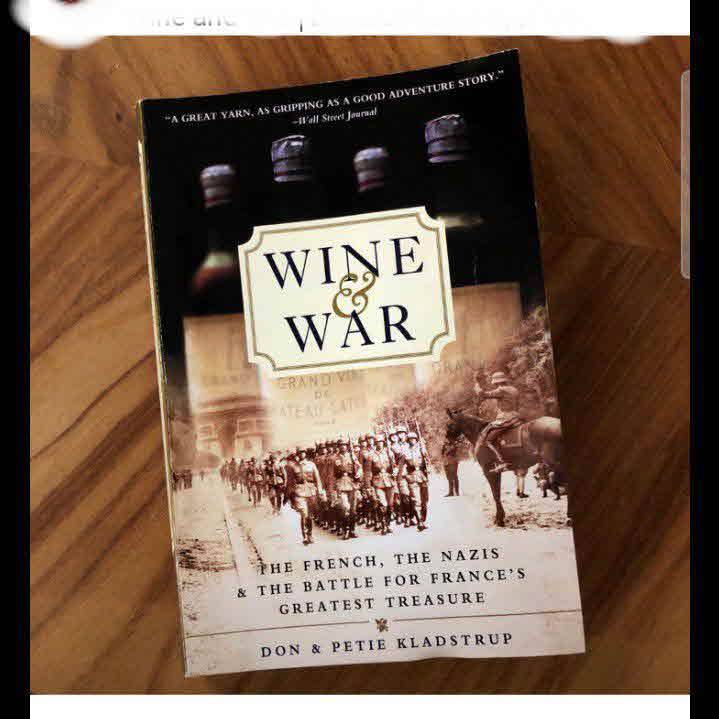
#12BooksOf2021 One of the 12 best books I read in 2021. April.

#12BooksOf2021 One of the 12 best books I read in 2021. April.
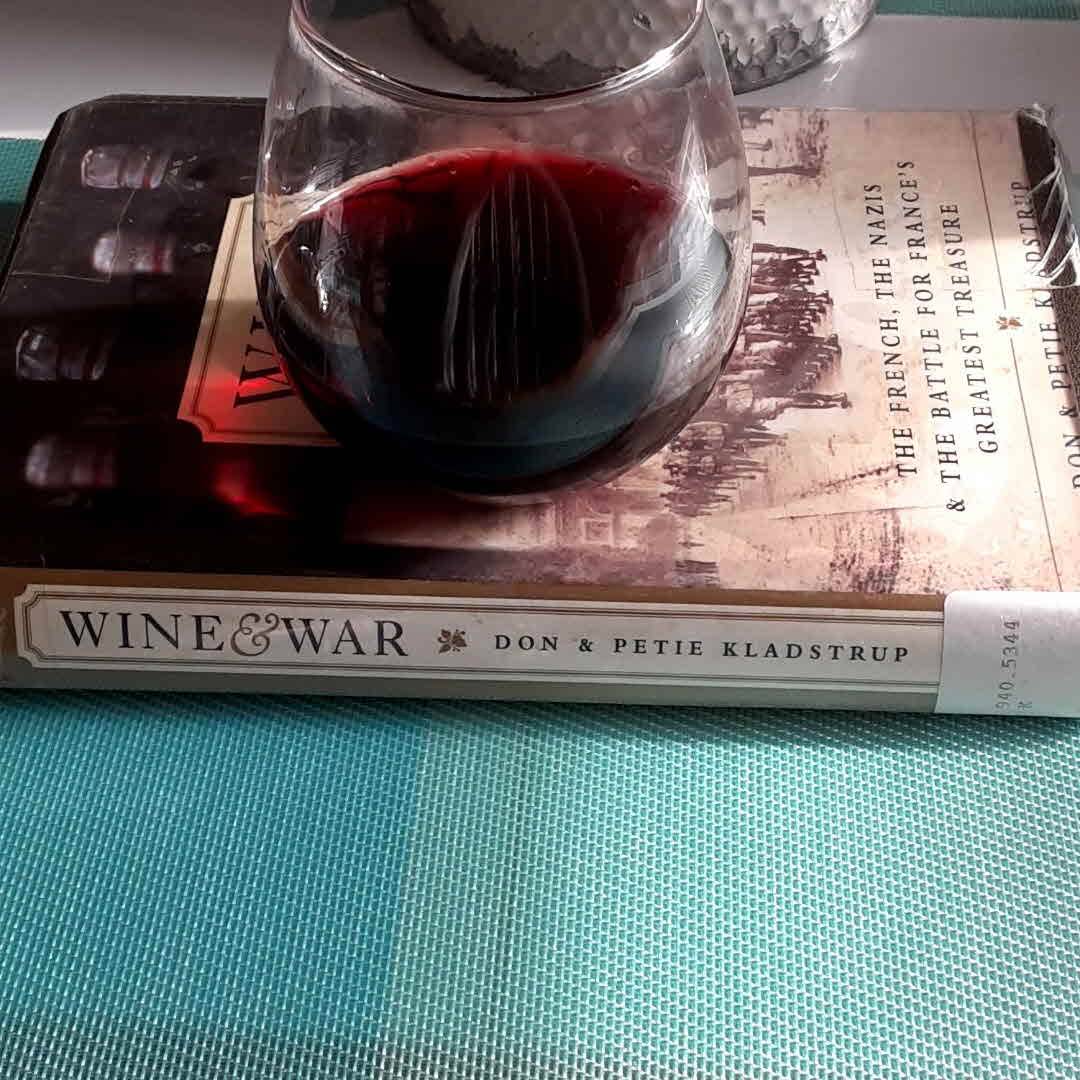
Hopefully, there are words in French or German that can convey how good this book is. But in English? They don't exist.
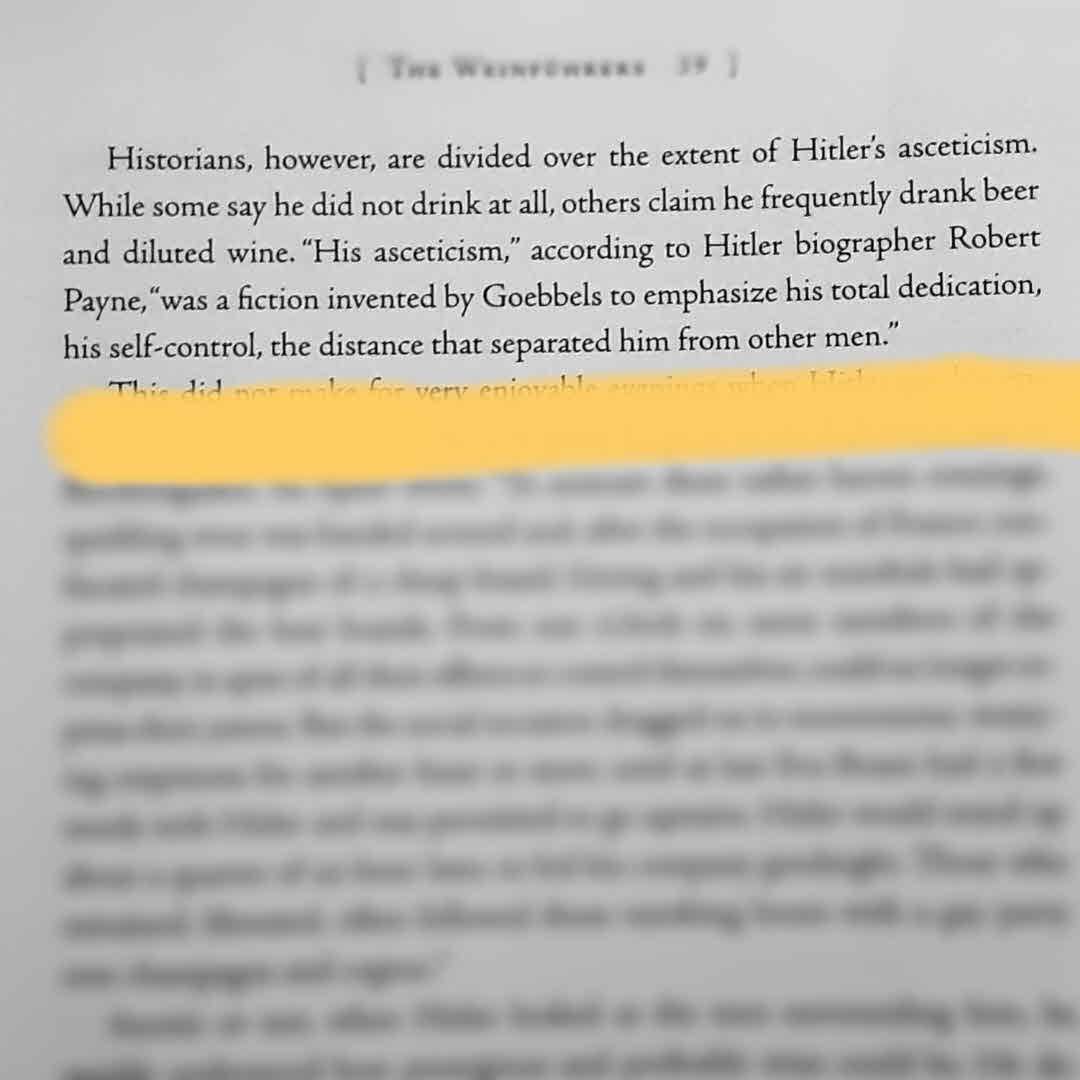
After one taste of a great French wine, Hitler is reported to have pushed it away, calling it " nothing but vulgar vinegar."
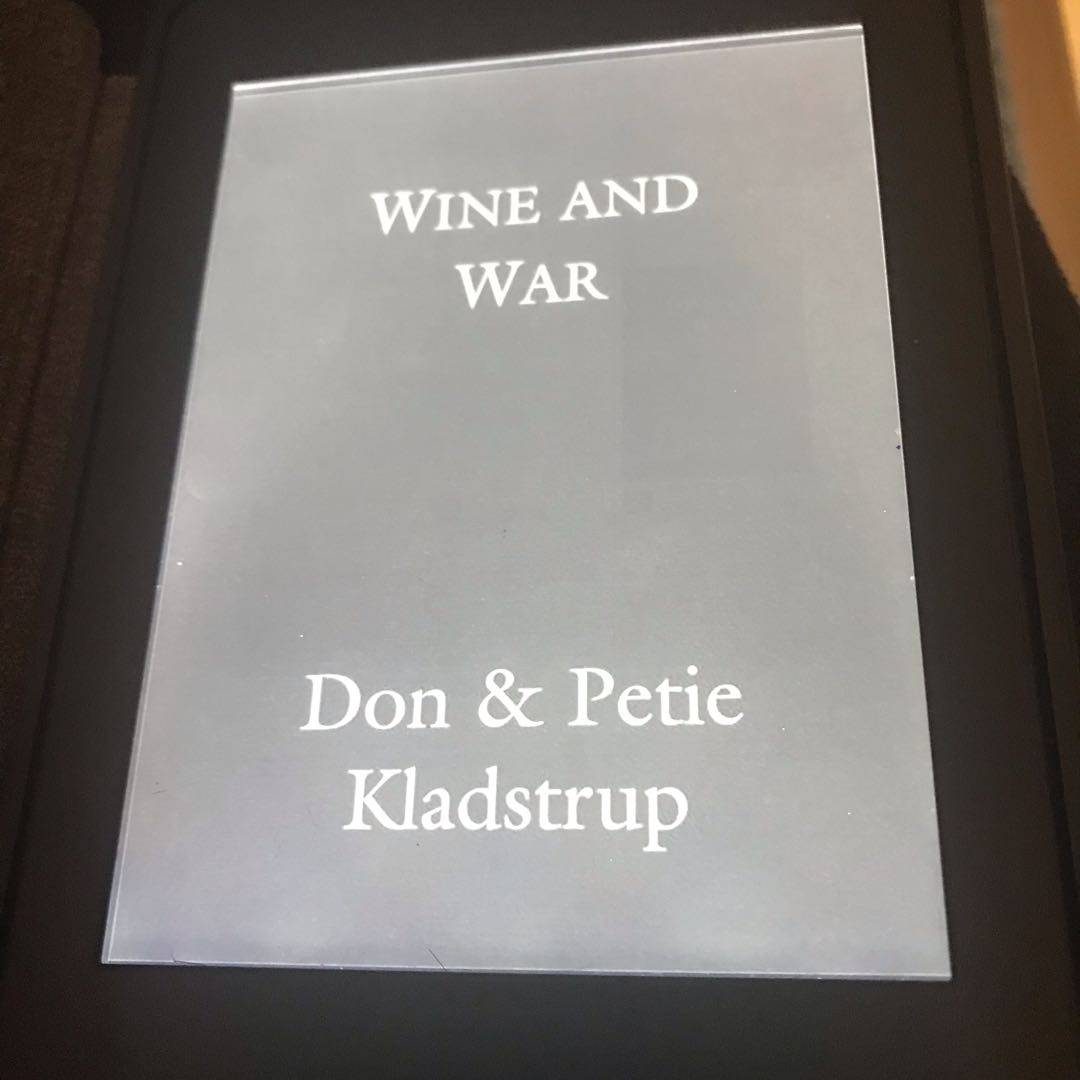
I think this is probably a really good read if you love non fiction and reading about wine. I‘m not a massive NF fan and prefer drinking the wine 🍷.
It was entertaining though and I did learn some new stuff.
#whineorwine #booked2020
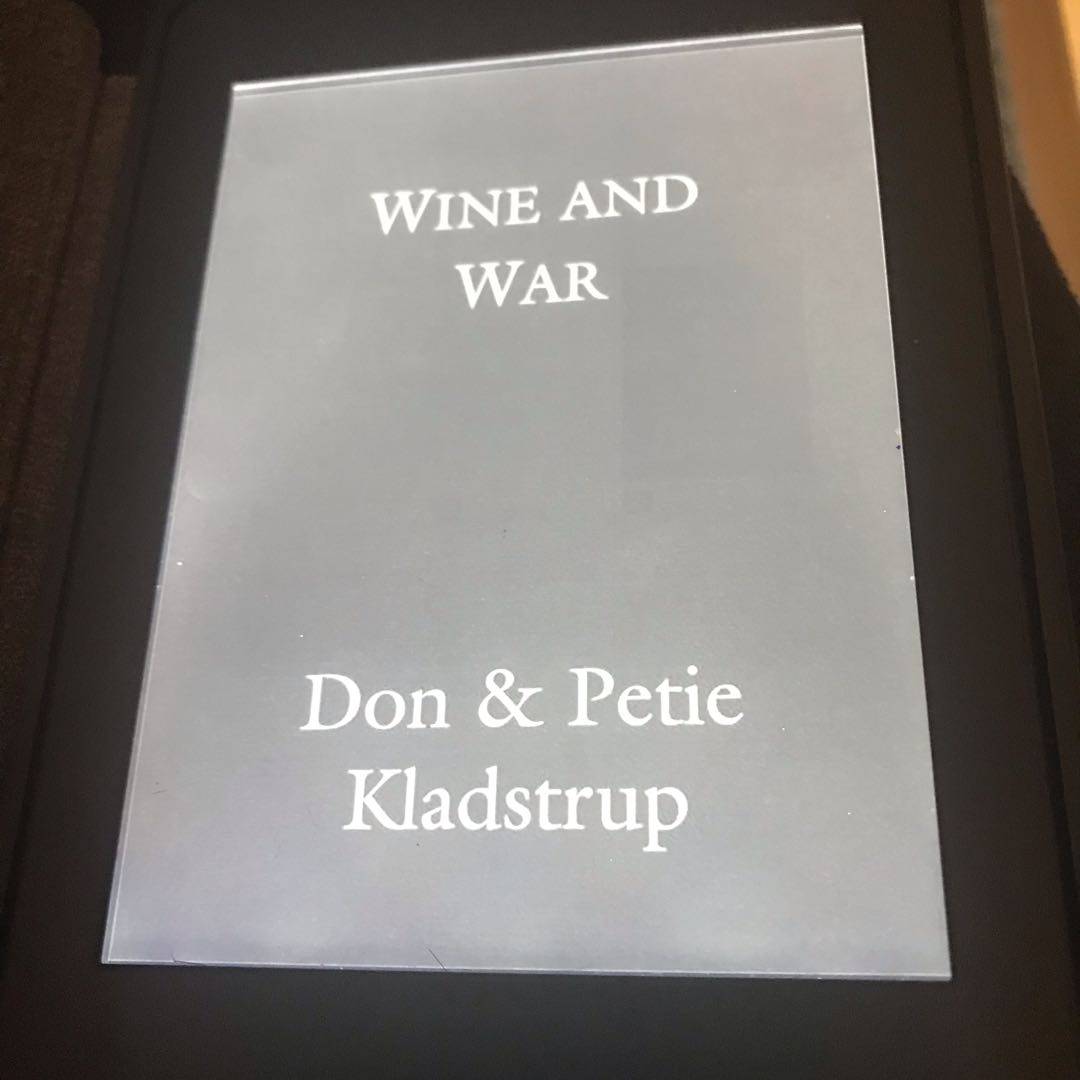
I‘m assuming the contents will be a bit more fun than the cover!
Reading for #wineorwhine #booked2020
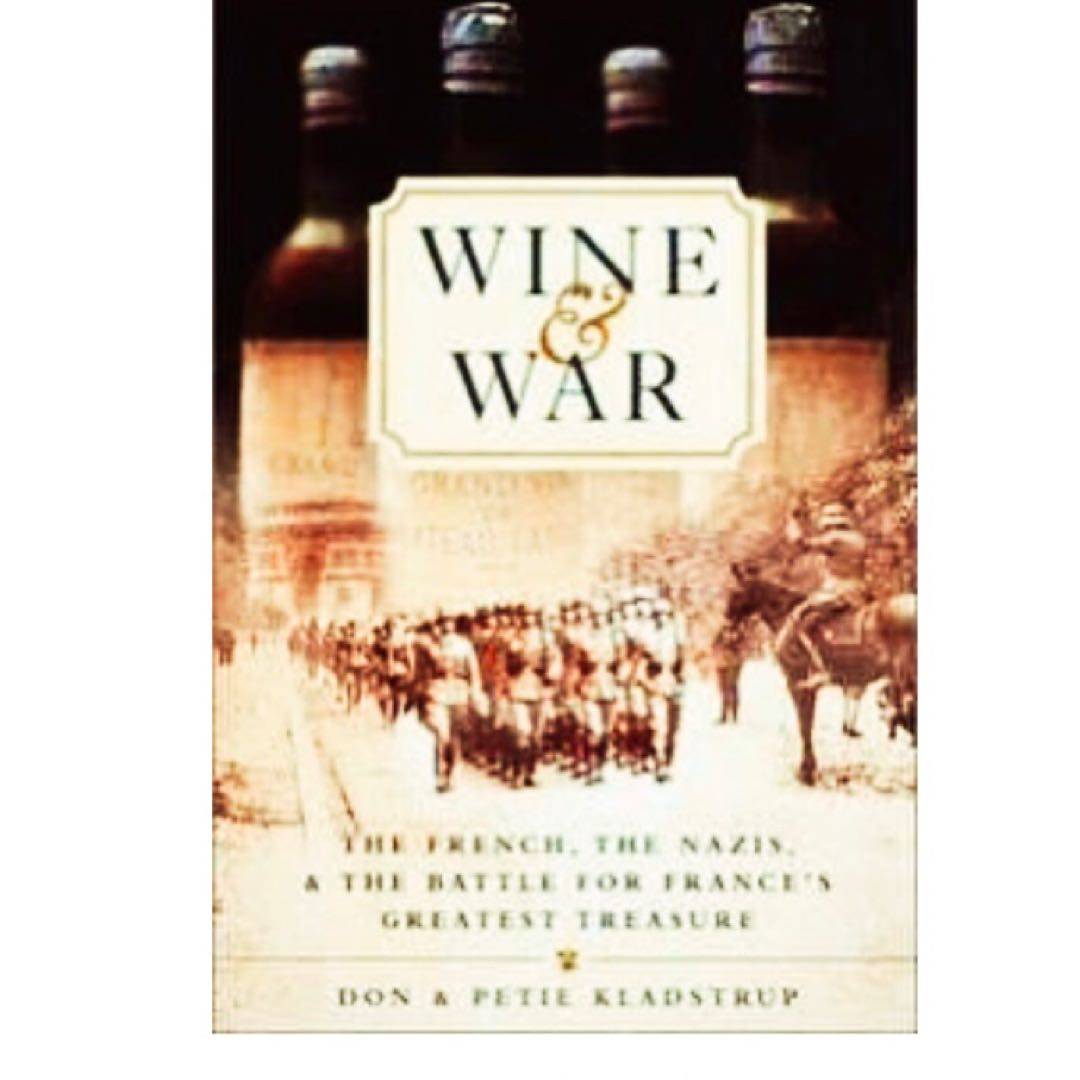
The French, The Nazis, and the battle for France‘s Greatest Treasures
#wineonthecover
#bibliomaynia
@Alwaysbeenaloverofbooks @OriginalCyn620
This is an wonderful book with some amazing stories. I will never think of French wine the same way again!
If you like wine and history, this book is for you. And if you don‘t want to see the horrors of the past ever happen again, this book is definitely for you. Santé!
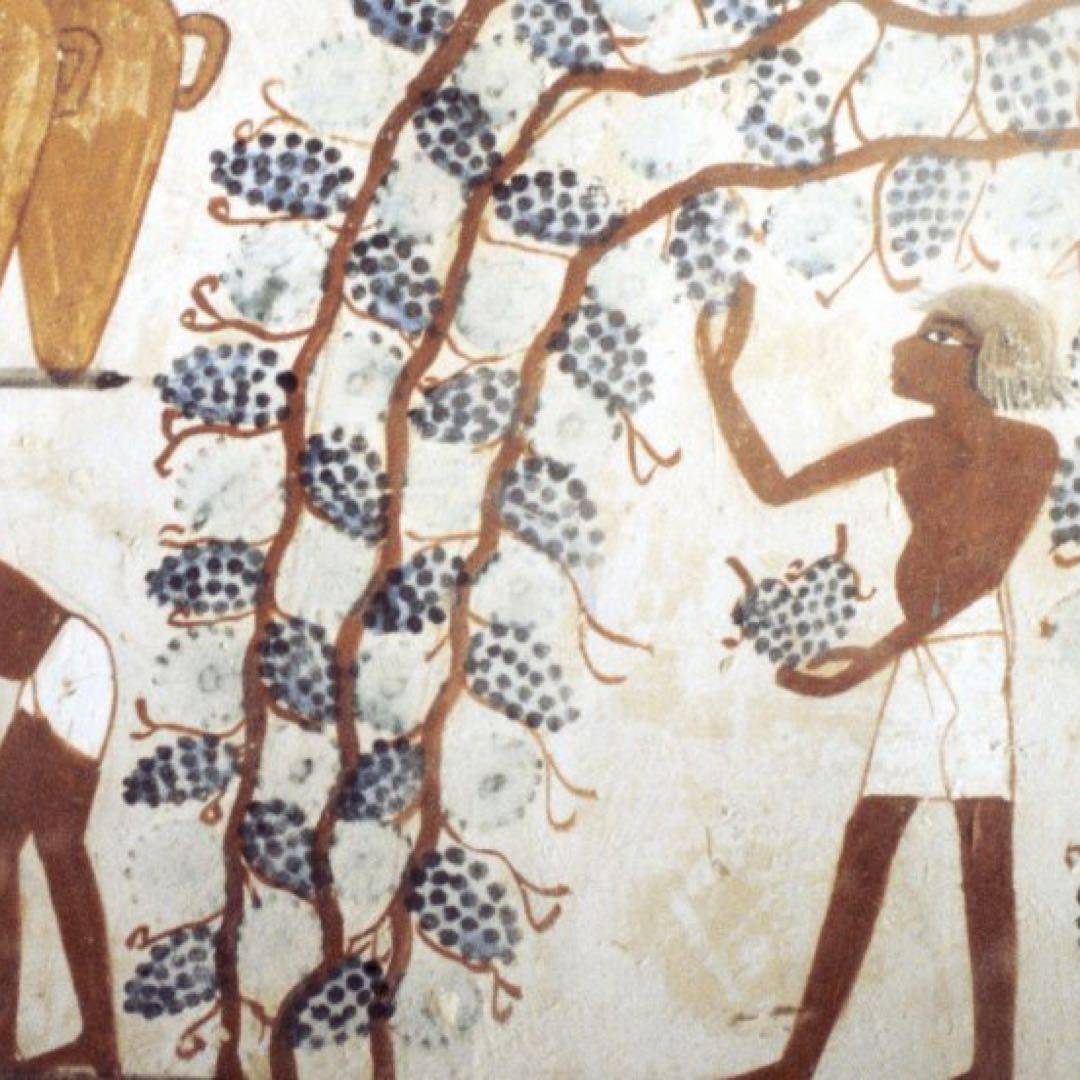
Wine was one of the first signs of civilization to appear in the life of human beings. It gives spirit to those who know how to taste it, but it punishes those who drink it without restraint.
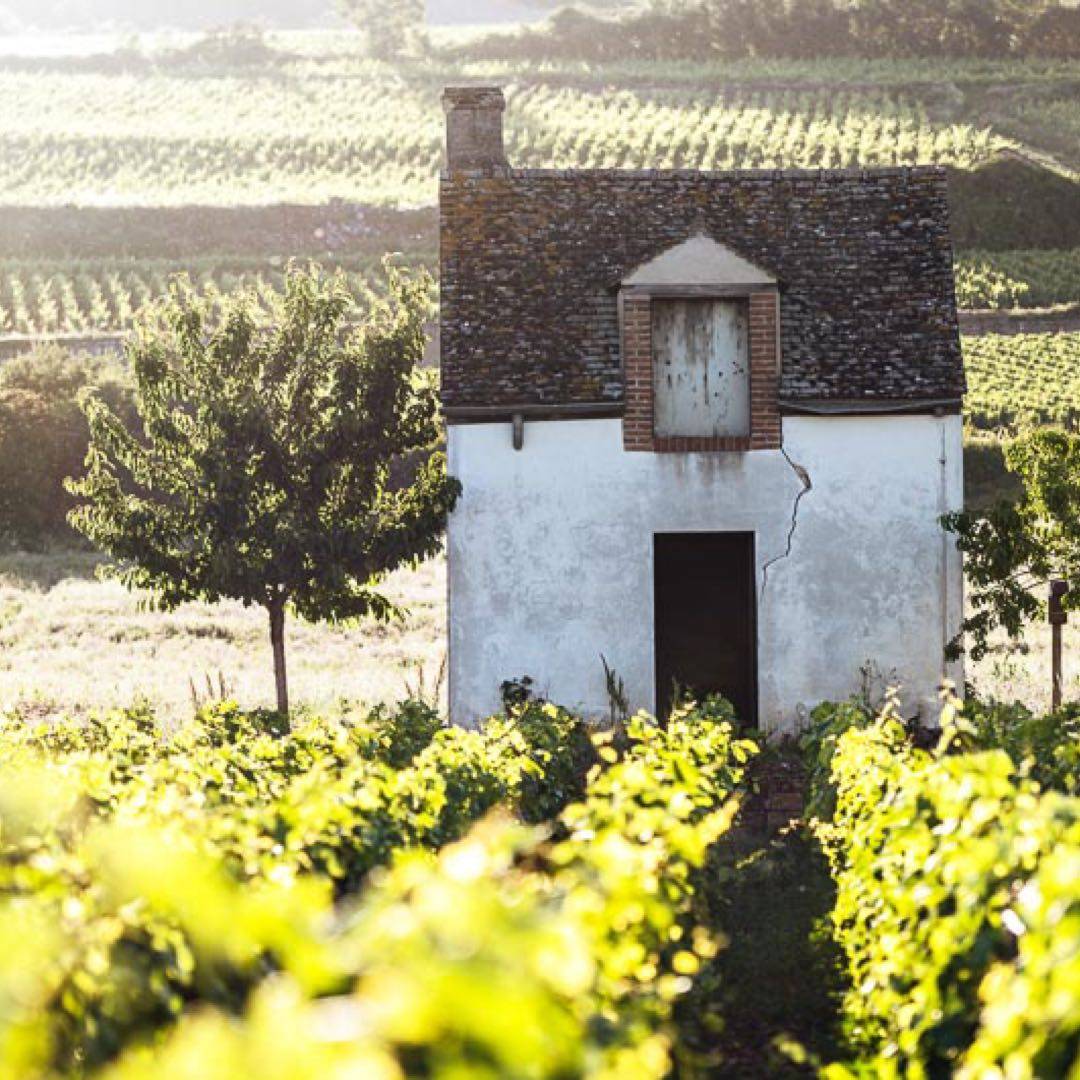
The wind of the apocalypse that blew from the east for sixty months, driving away laughter and happiness from the kingdom of vines, and leaving only the silence of death, has finally ended. —Georges Faiveley
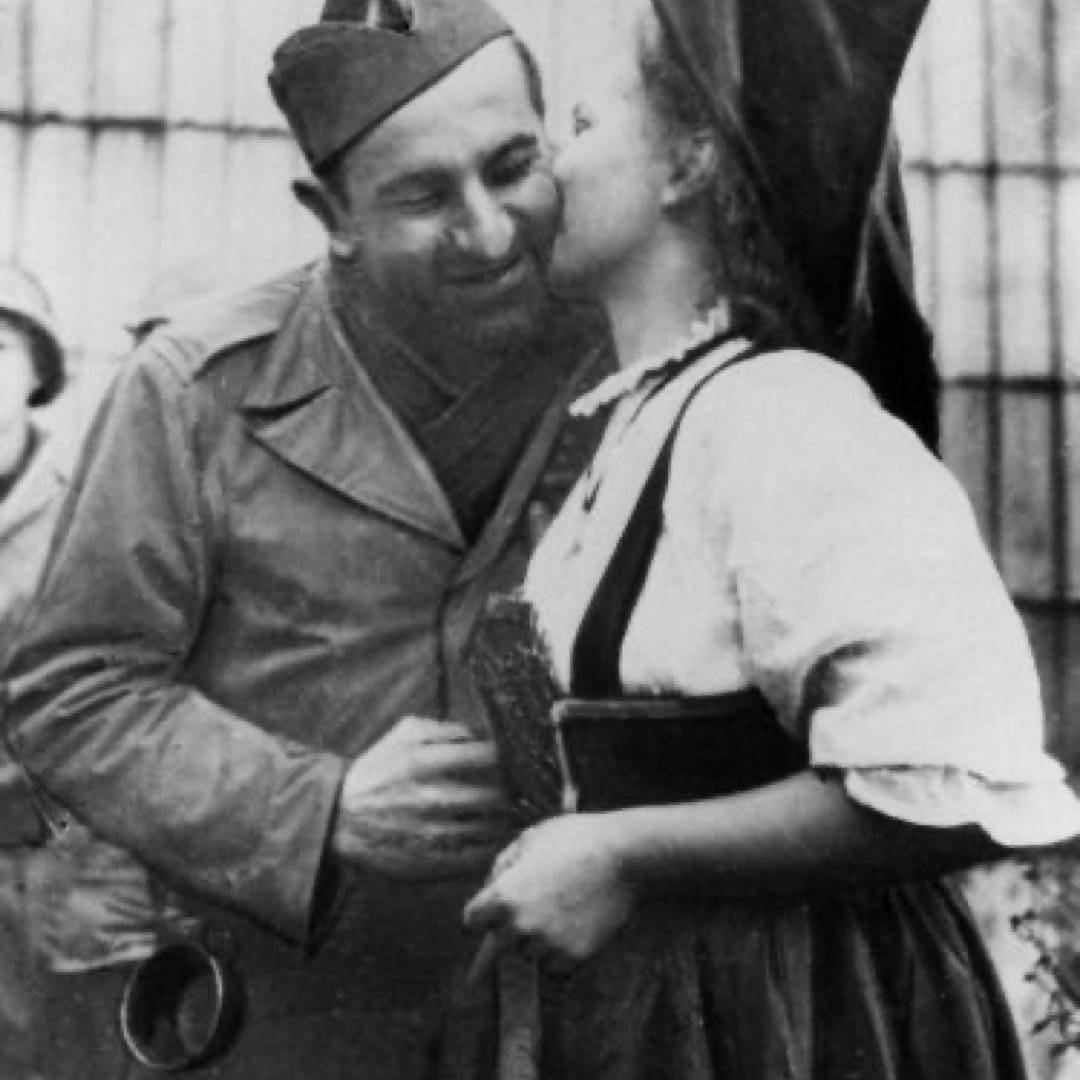
As Alsatians reclaimed the French identity, it was also safe to speak French. Instead of having to greet friends on the street by saying “Heil Hitler,” people could now say “Bon jour.”
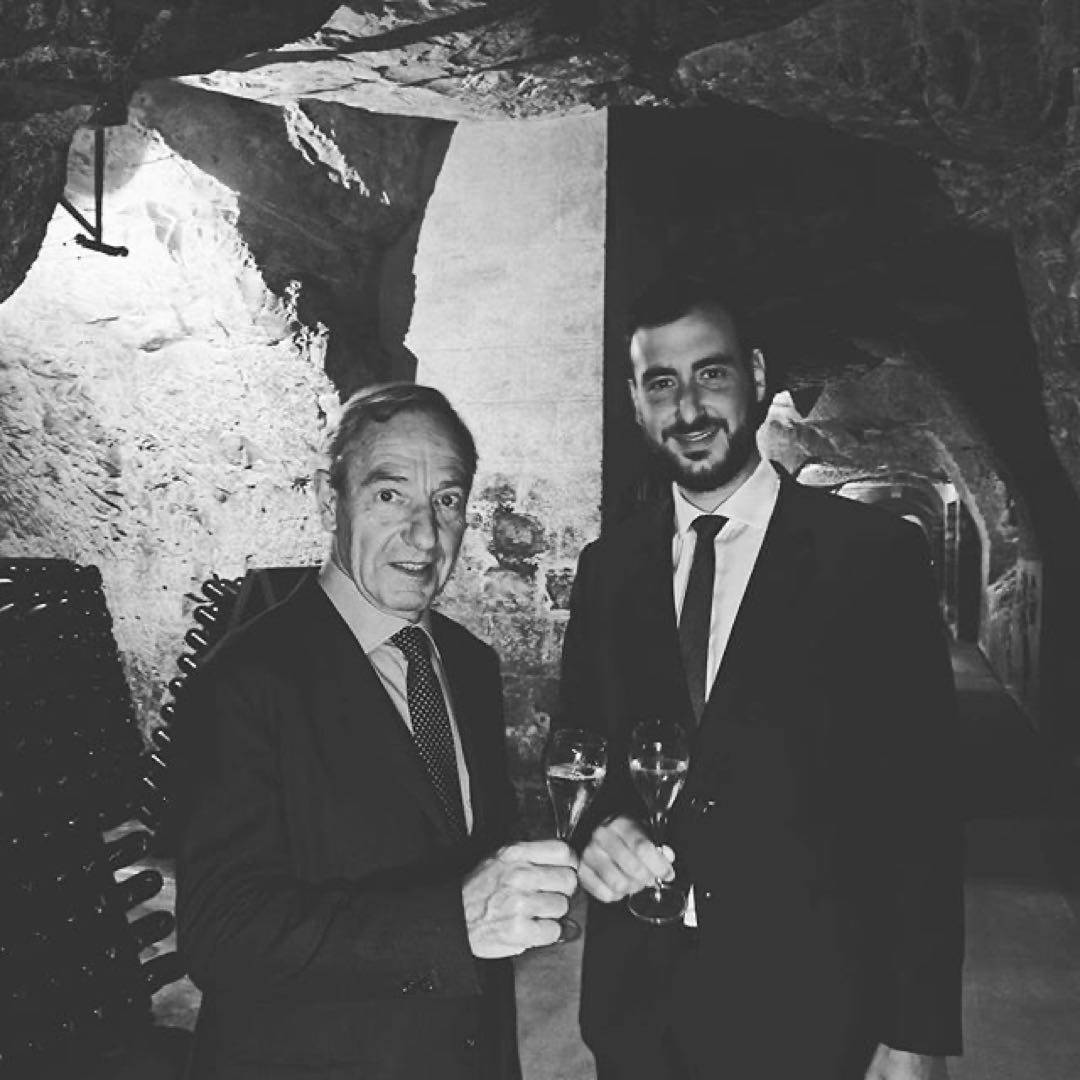
I came back not young anymore.
Claud Fourmon, wine seller, Holocaust Survivor, after liberation. He was 30 years old when he said this. Cruelty takes a heavy toll on the body and the mind.
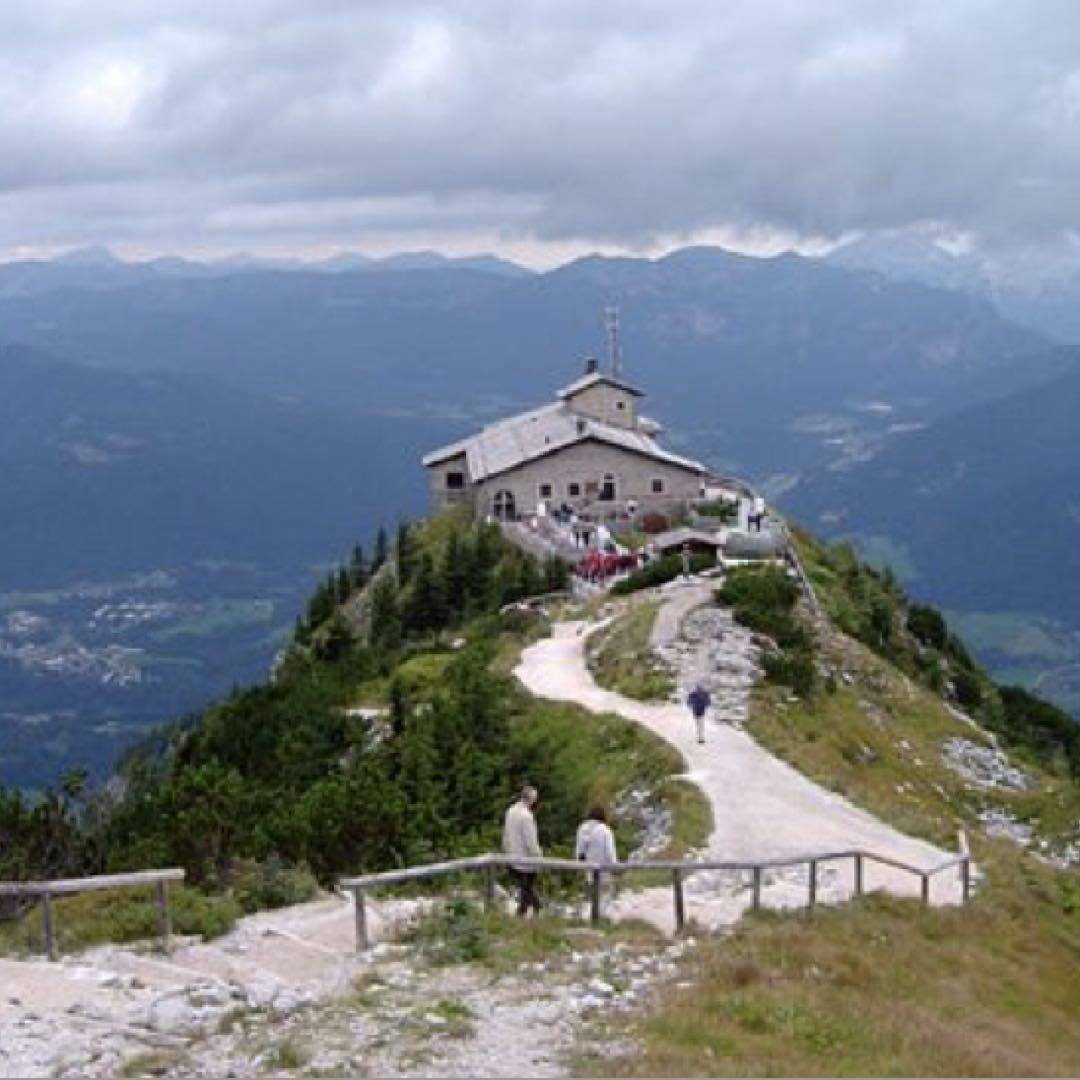
It occurred to Hitler that the mountain could be tunneled in such a way that he could be propelled up to the summit in an elevator, thus permitting him to survey the surrounding landscape like a god surveying all the kingdoms of the earth.
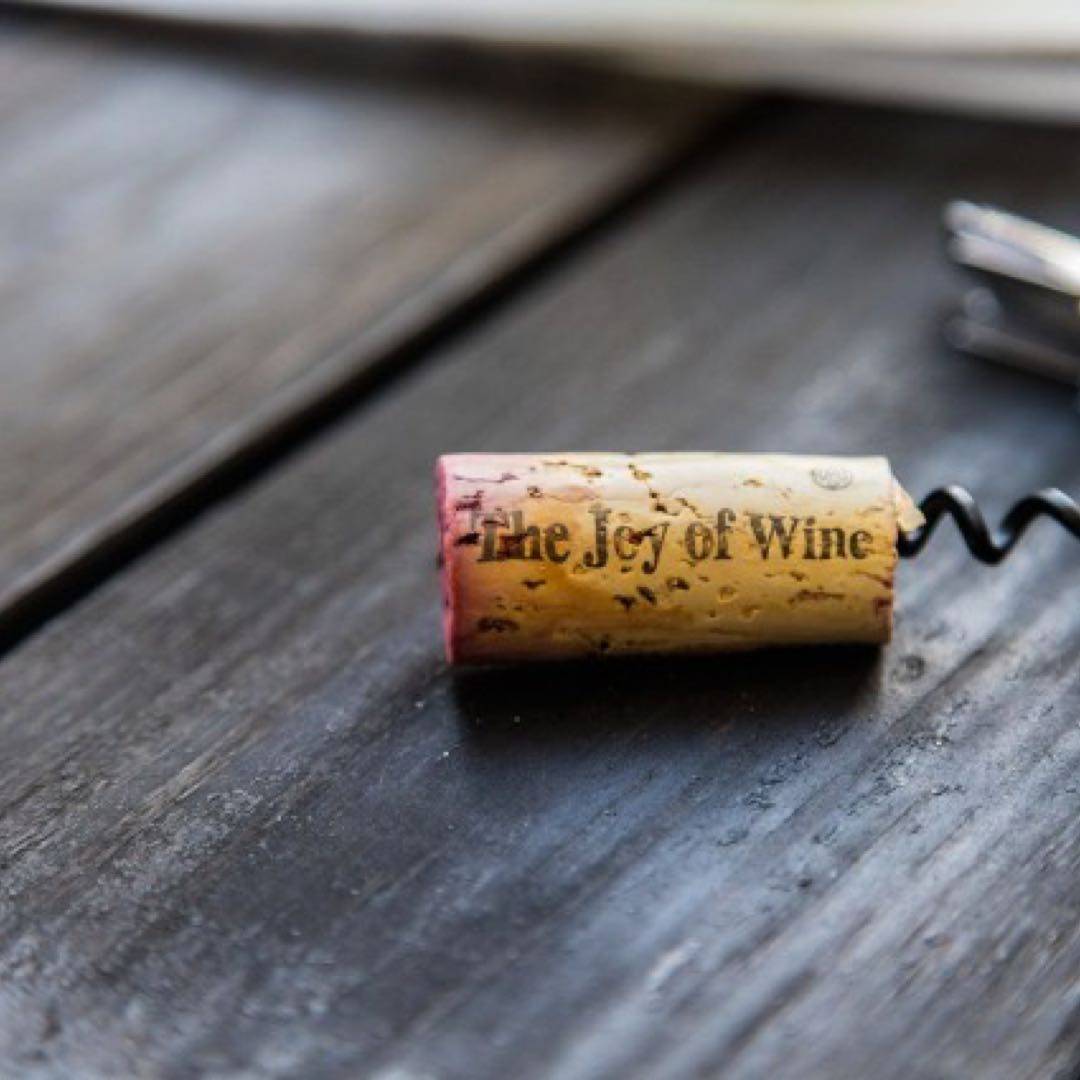
To talk about wine, that is a wonderful thing, but drinking it, that is much better.
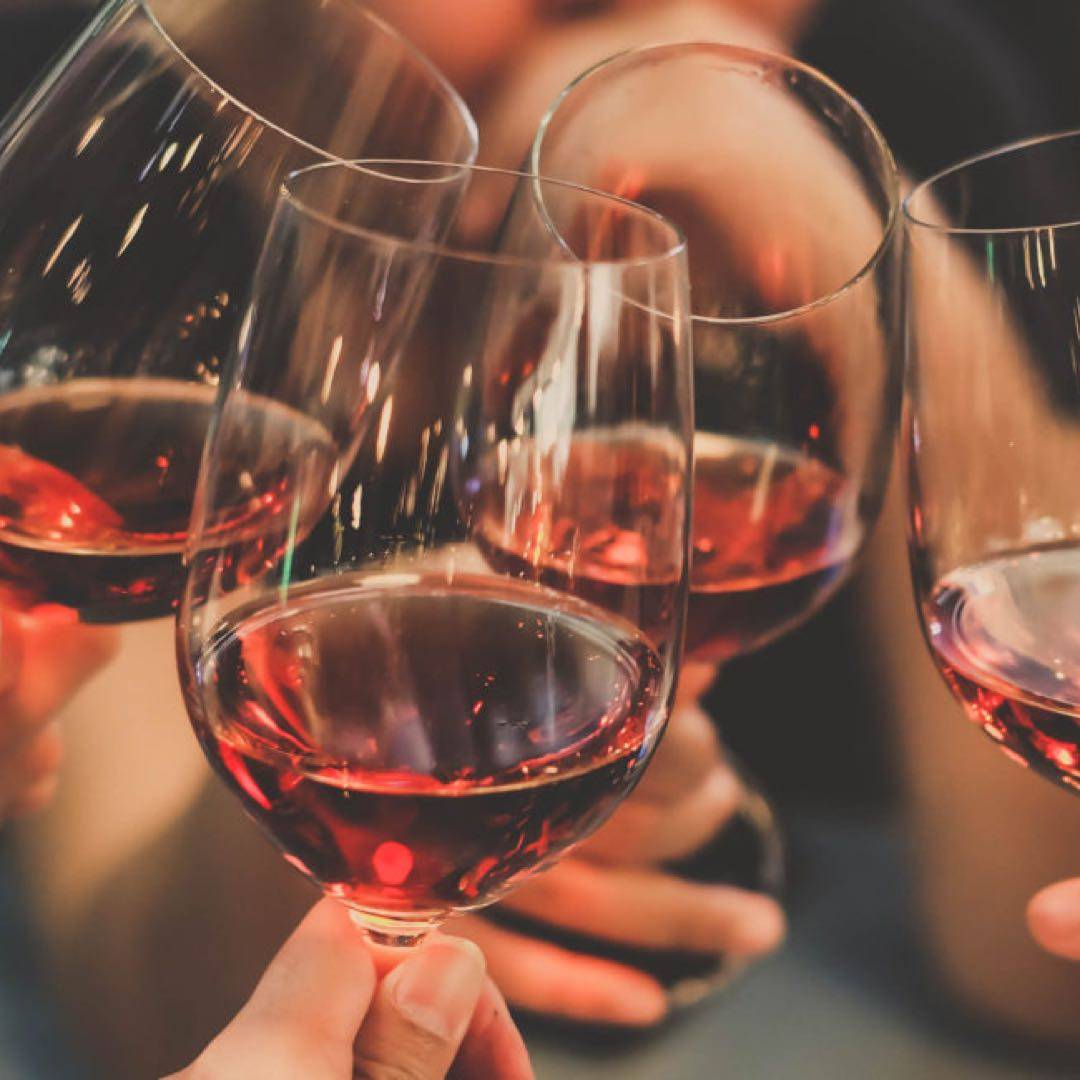
This evening will give us time to recall and glory in one of Franc‘s purest treasures, our wine, and to alleviate the misery with which we have had to live for so long. A party to celebrate wine? No, it is not just that. It is also a celebration of us and how we have survived. With this little glass of wine that we are going to drink together tonight, we will savor not only a rare fruit but also the joy of a satisfied heart.
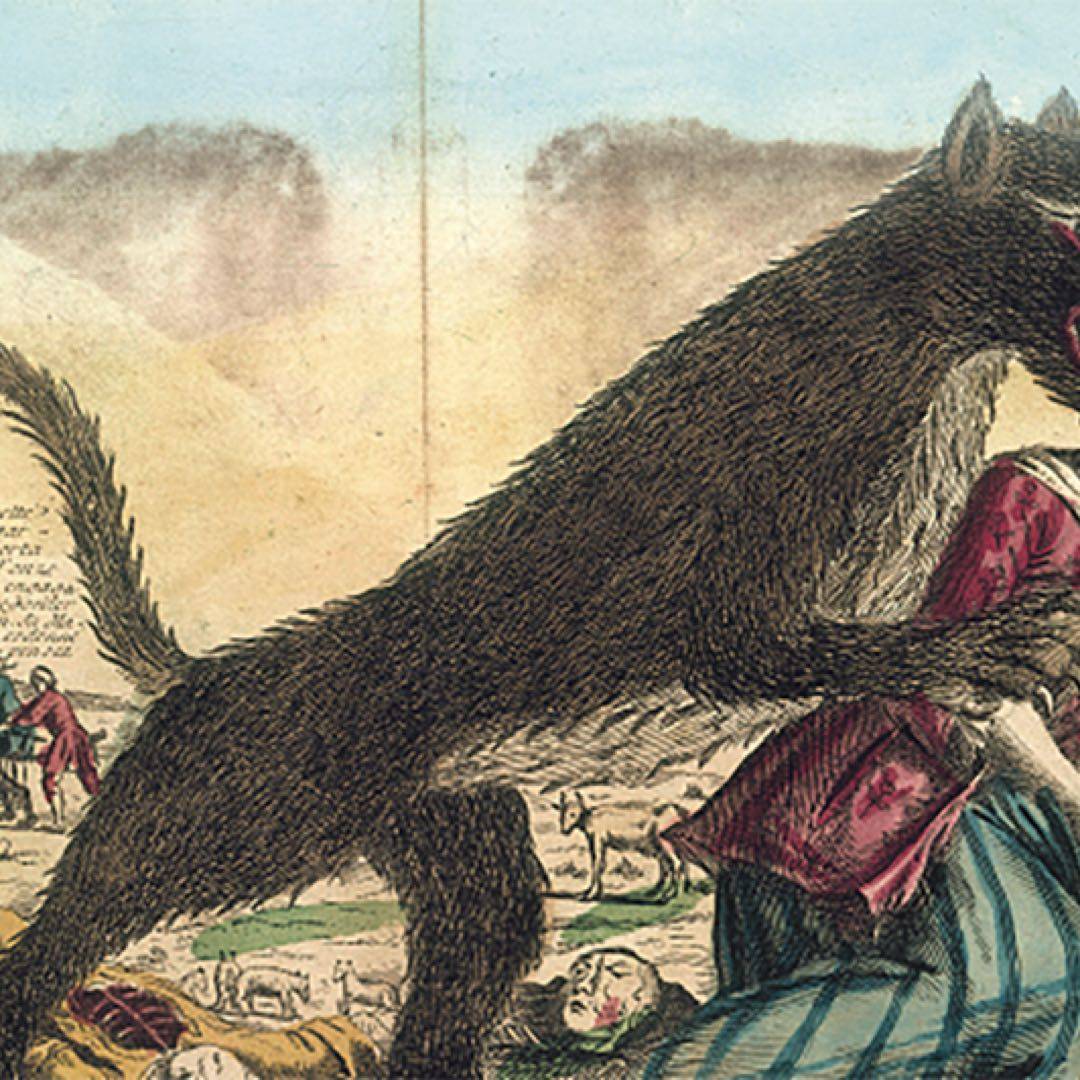
Once upon a time in Burgundy, the wolves ran free. They prowled the forests and, in times of famine, roamed the streets of towns and villages. In the 10th century, it is said, their packs were so enormous and so vicious that they drove the Dukes of Burgundy from the windswept capital in Auxerre to the safer climes of Dijon. It was the curse of the wolves, the Duke declared; evil lurked wherever the beasts were found.
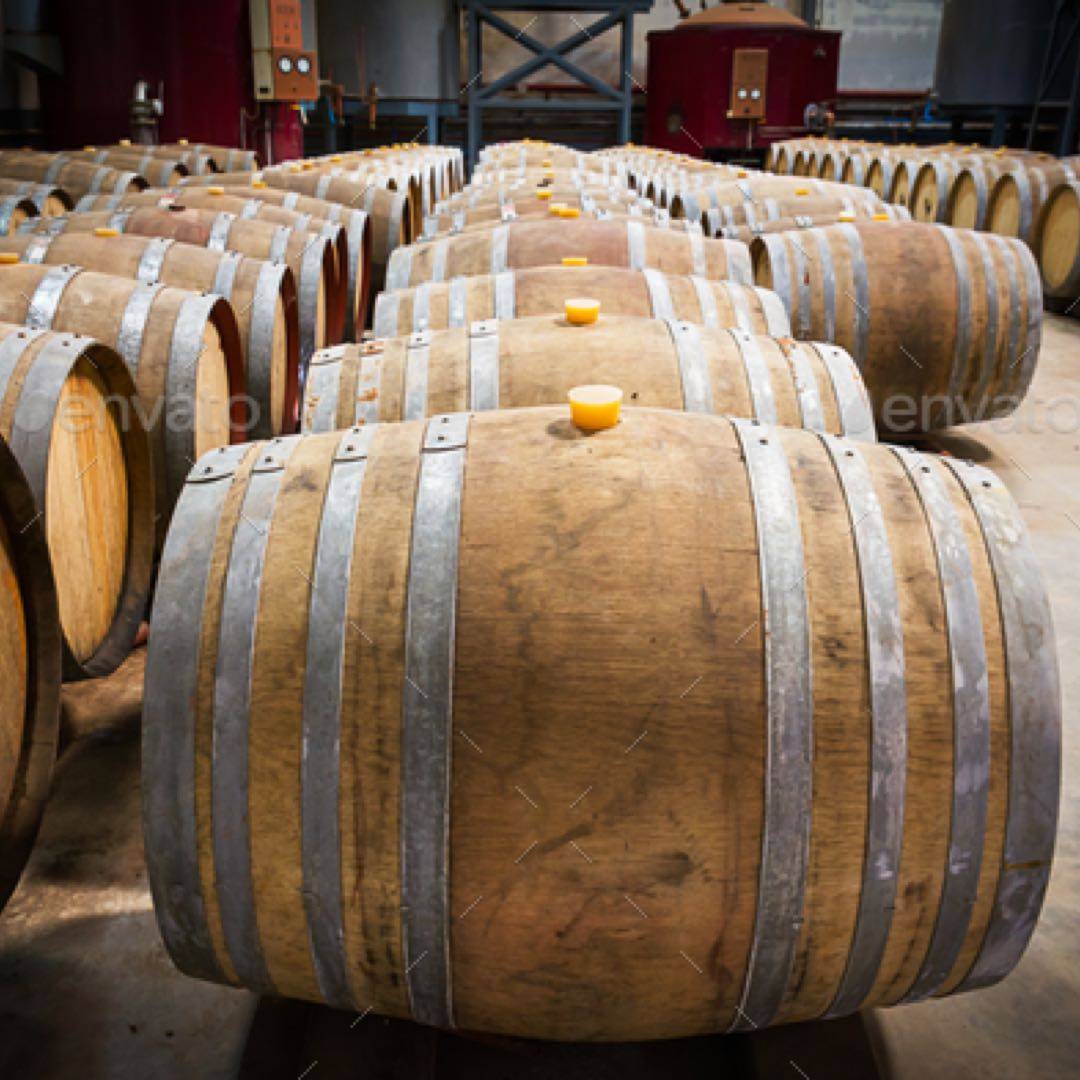
Over the next two years, Monmousseaux conducted a traffic in human beings, ferrying Resistance leaders in and out of the Occupied Zone in his wine barrels. As each mission was completed, he would put his barrels back together, fill them with wine and return home. The Germans never discovered what he was doing.
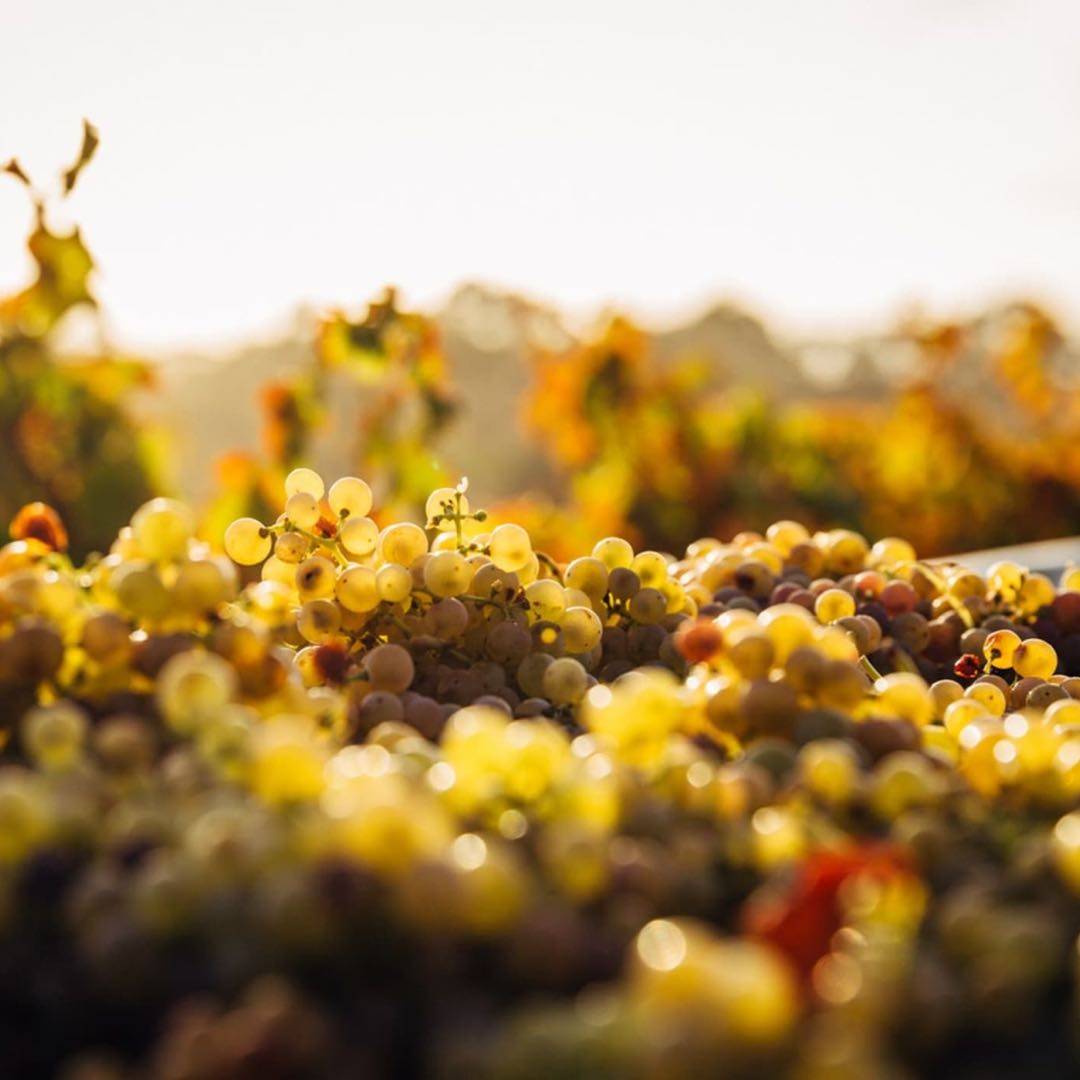
Weinführer: a German-sounding word made up by the French to designate the men sent by the Nazis to buy French wine and oversee its distribution
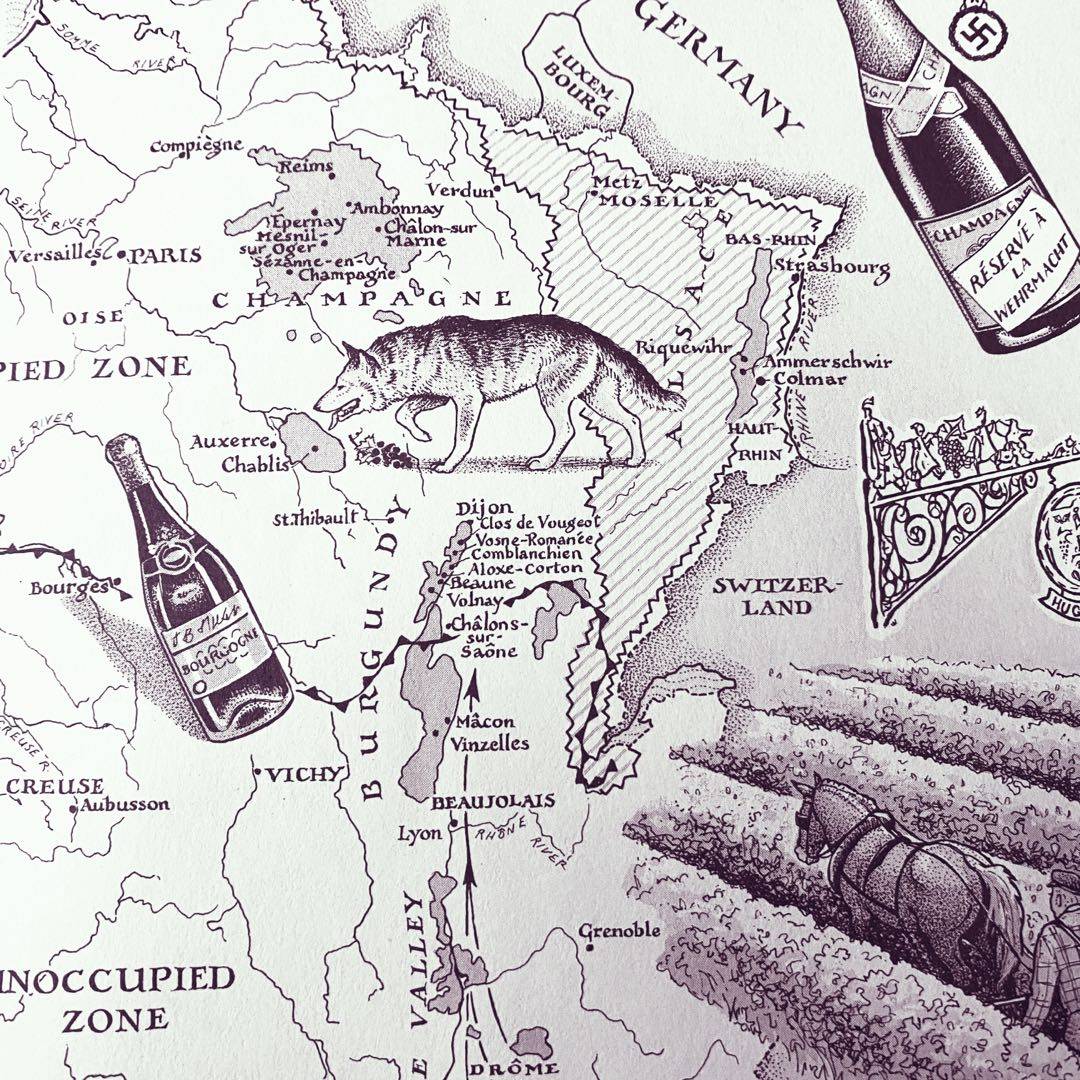
No region suffered more pillaging of its wine than Champagne. Nearly two million bottles were grabbed by German soldiers during the first weeks of the occupation alone.
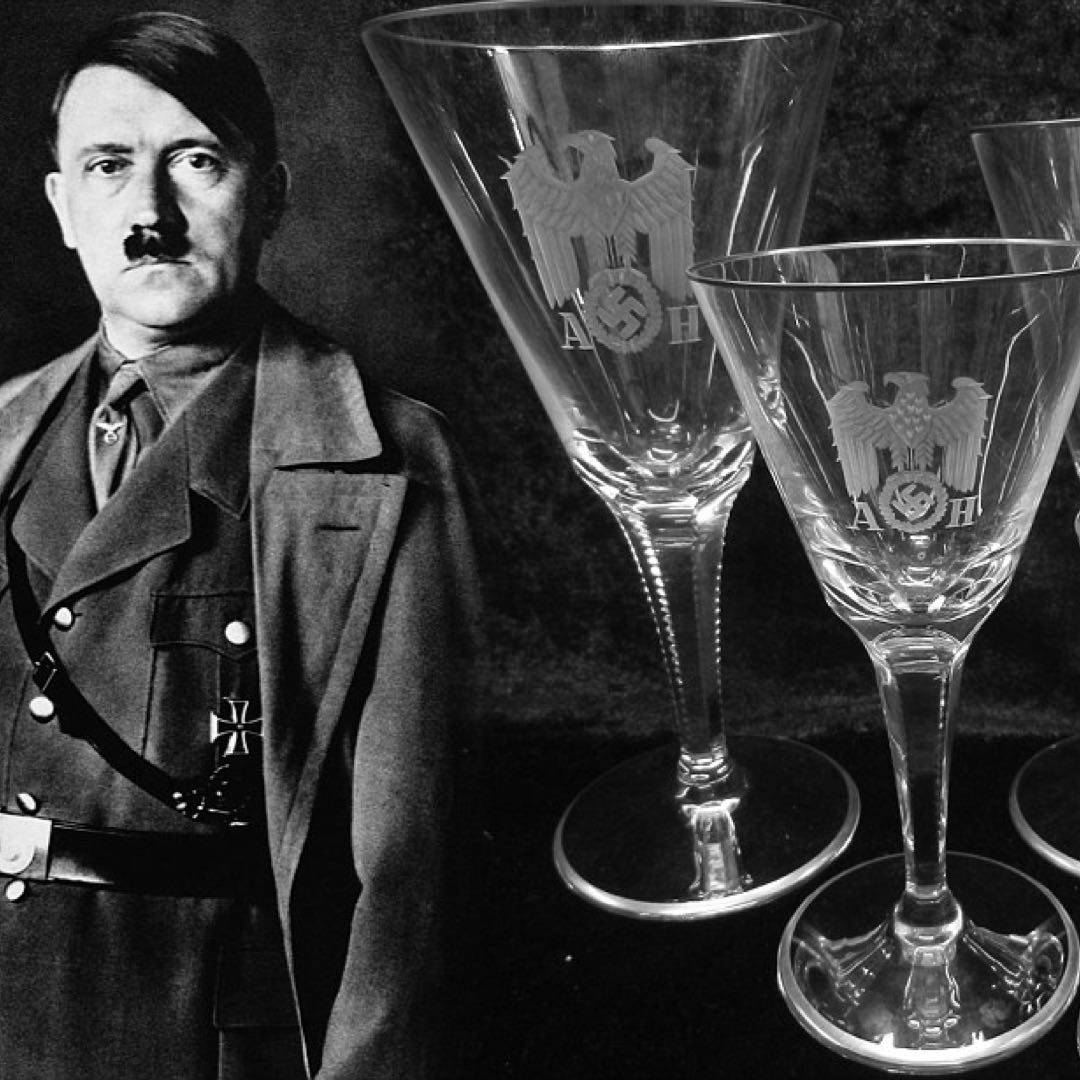
About the only one in the top leadership who was not interested in wine was the Führer himself. After one taste of great French wine, Hitler is reported to have pushed it away, calling it “nothing but vulgar vinegar”.
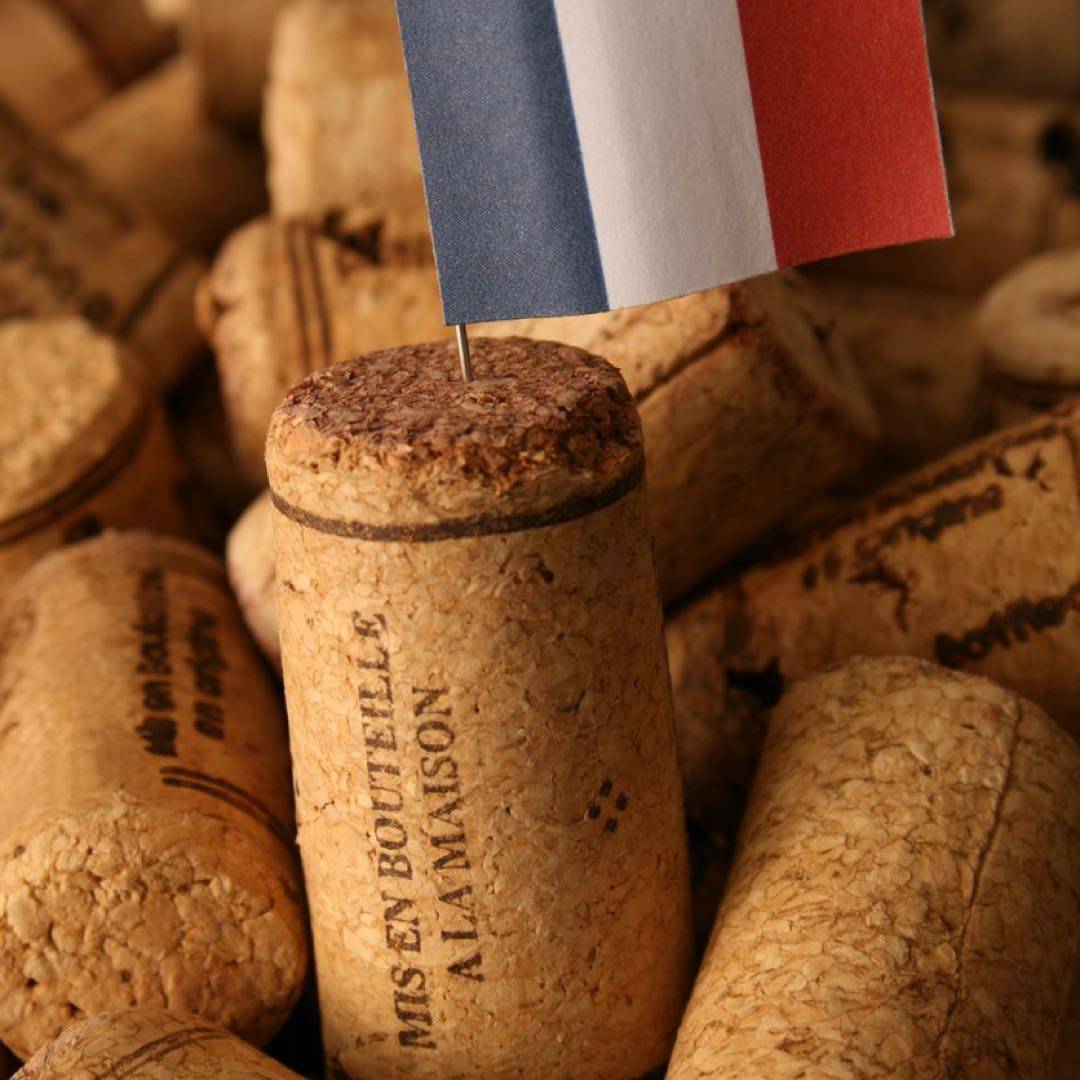
To be a Frenchman means to fight for your country and its wine.
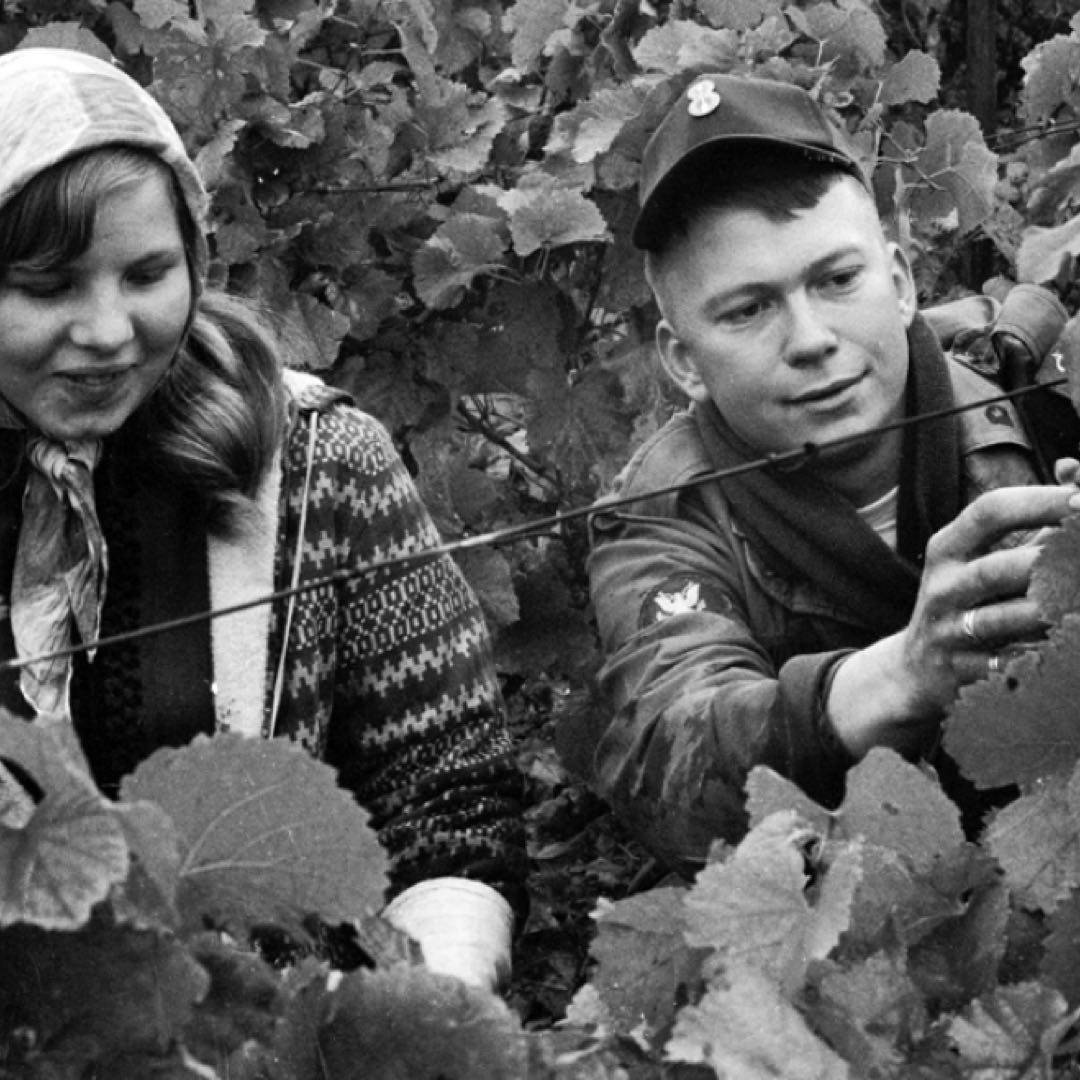
Many of the refugees were soldiers who once guarded the Maginot Line. “It was a retreat without glory.” Engel, who fought in World War I, recalled soldiers discarding their weapons as they passed his house, fleeing through the vineyard because the roads were so congested. “It was a sight that we, veterans of Verdun, watched with a heavy heart.”
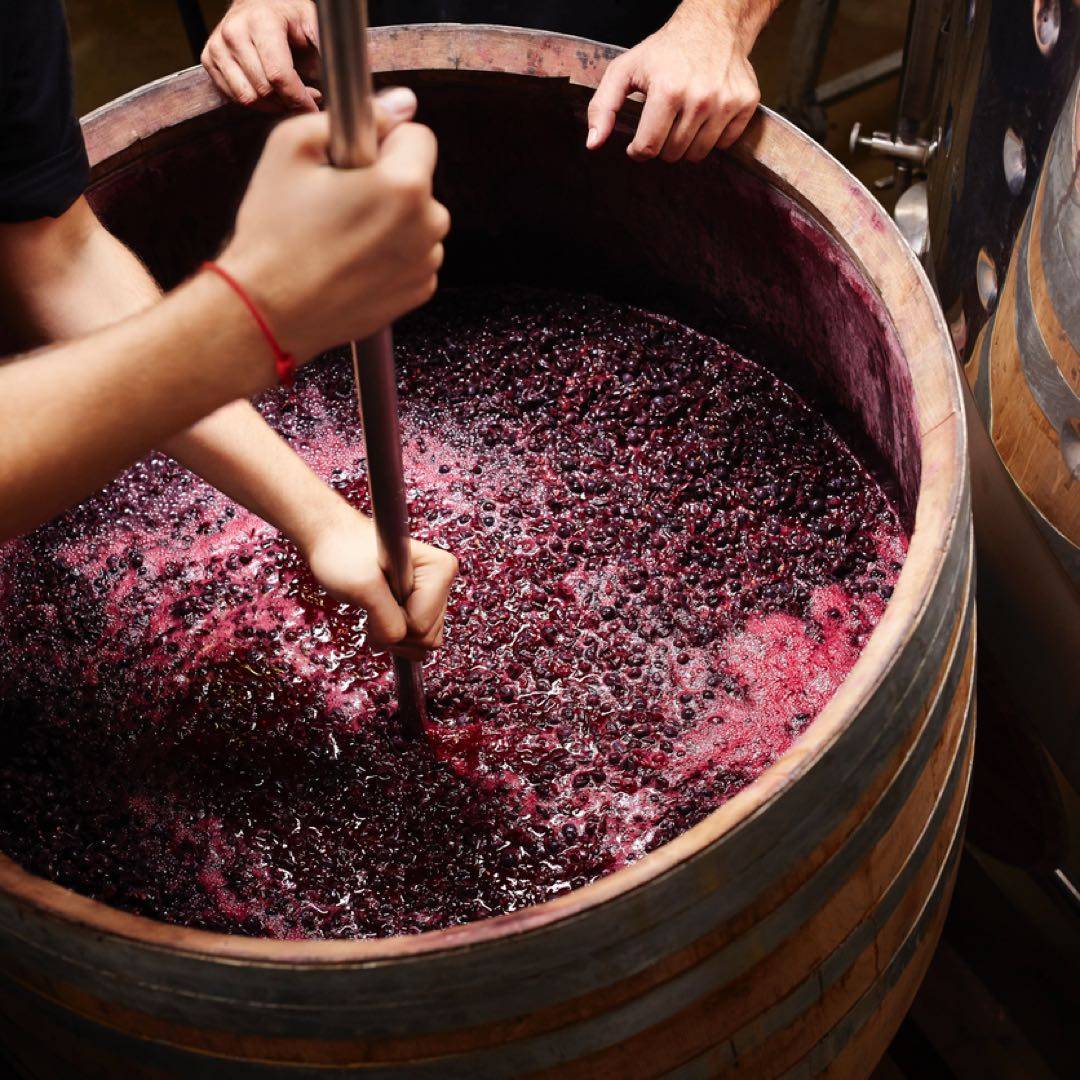
That life was one of legend and myth, a life which, in many ways, had changed little since the Middle Ages . “It was a simpler time in the vineyards,” Maurice‘s son Robert recalled years later. “We had a way of living, a way of making wine that was natural and tres ancienne.”
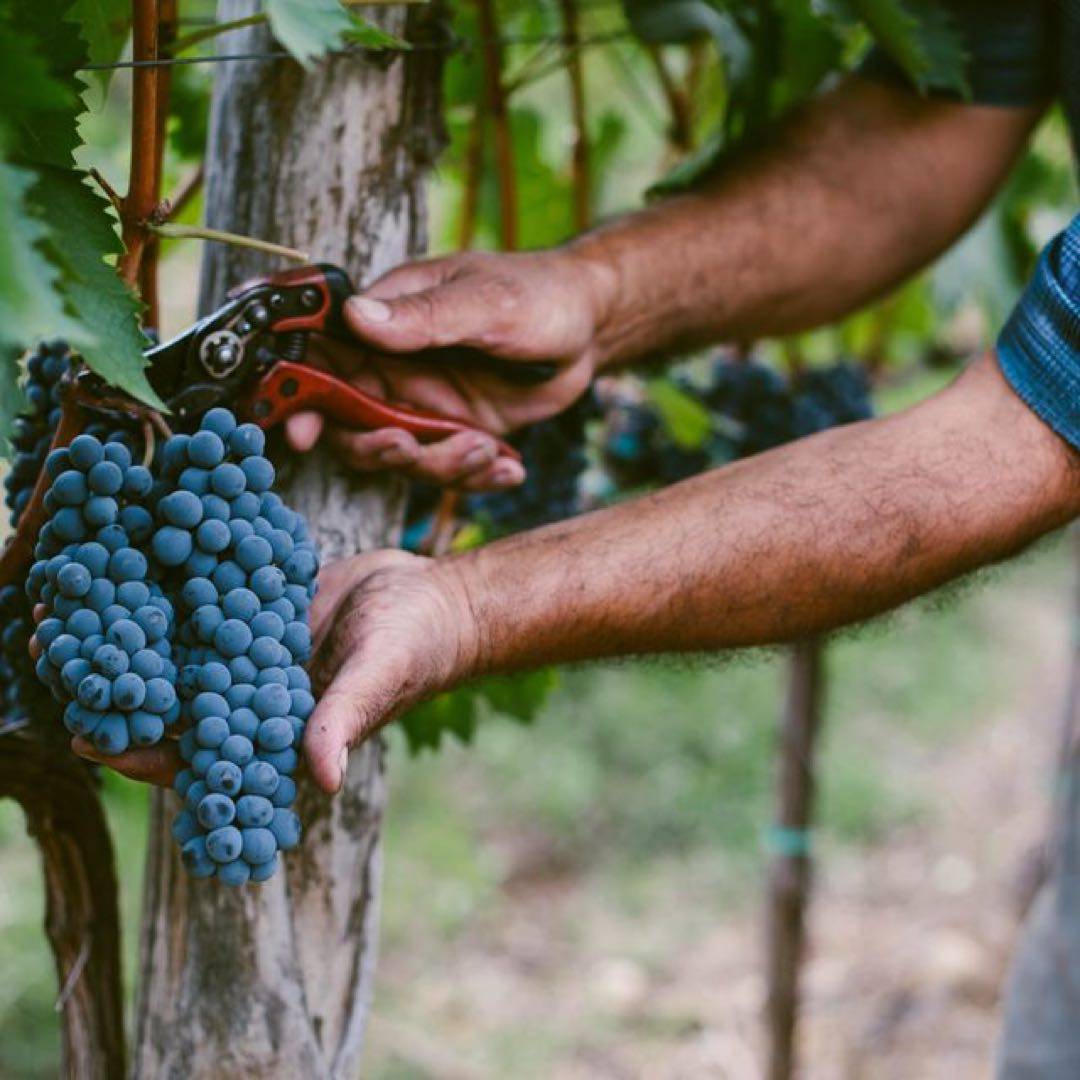
For the second time in little more than a generation, French wine growers faced the agonizing prospect of trying to get the harvest in before vineyards were turned into battlefields.
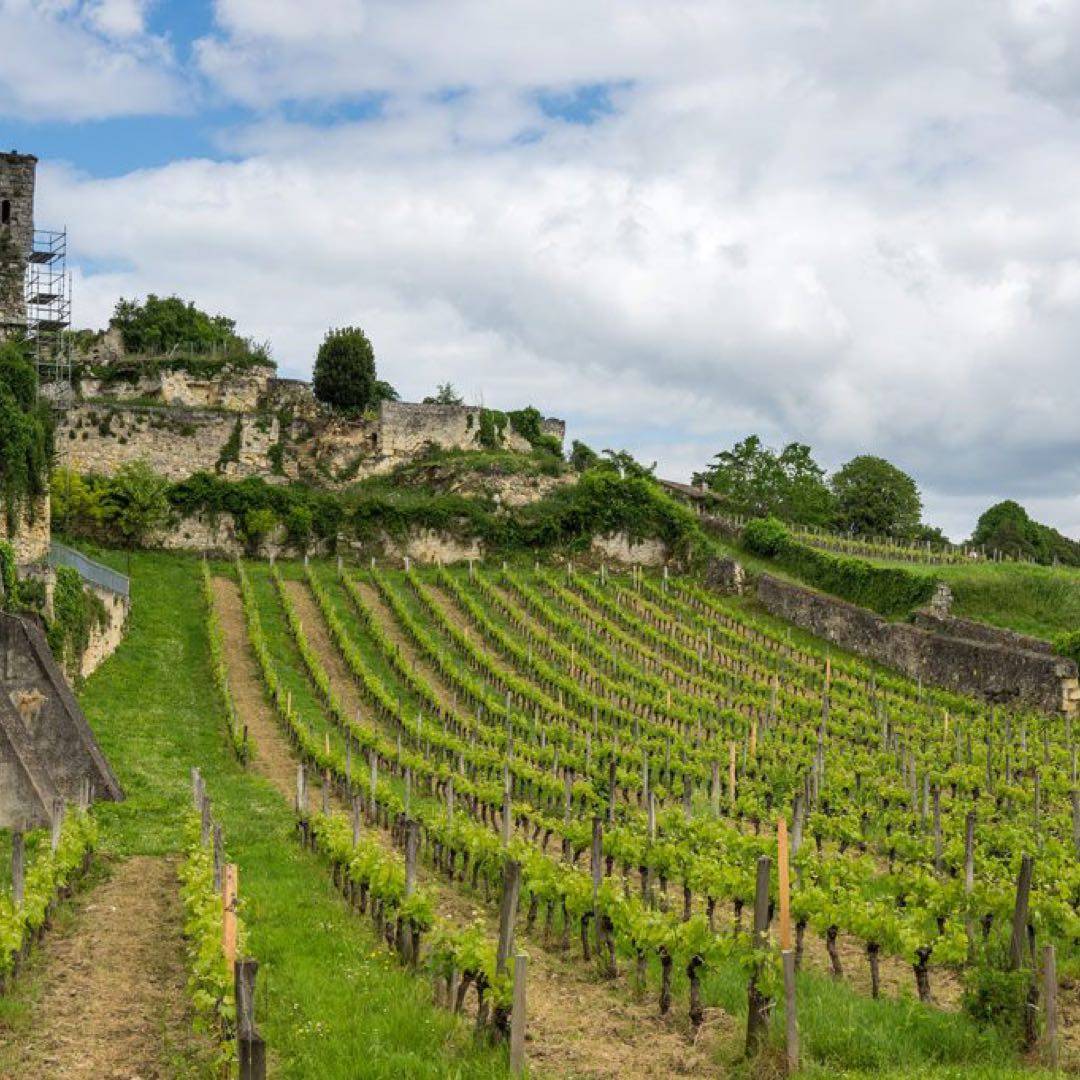
We know our land was here before we came and that it will be here long after we are gone. With our wine, we have survived wars, the Revolution and phylloxera. Each harvest renews promises made in the spring. We live with the continuing cycle. This gives us a taste of eternity.
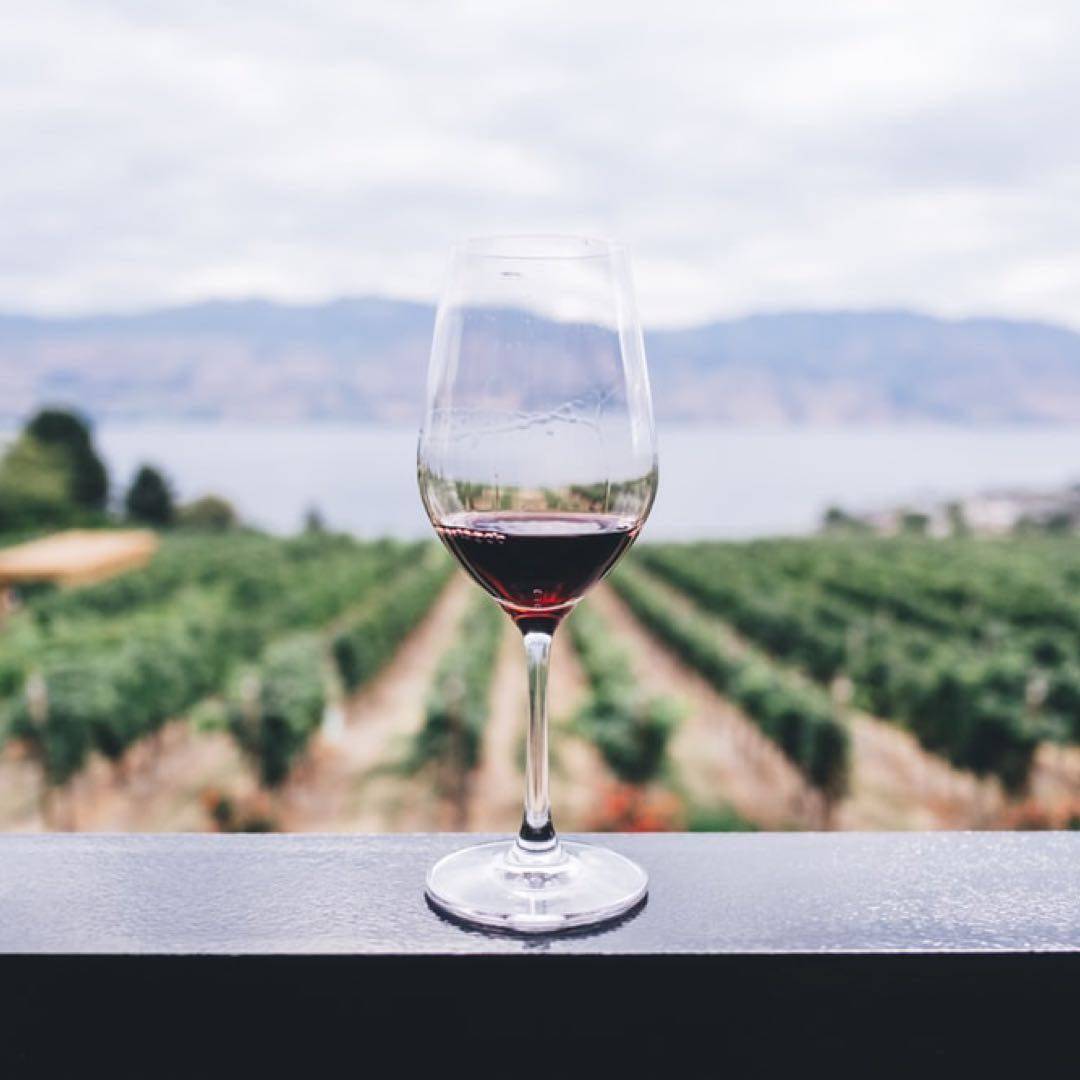
...how important wine is to France. It is not just a beverage or commercial product to be poured from a bottle. It is much more than that. Like the flag, the Tricolore, it goes to the country‘s heart and soul. “Wine makes us proud of our past...it gives us courage and hope.”
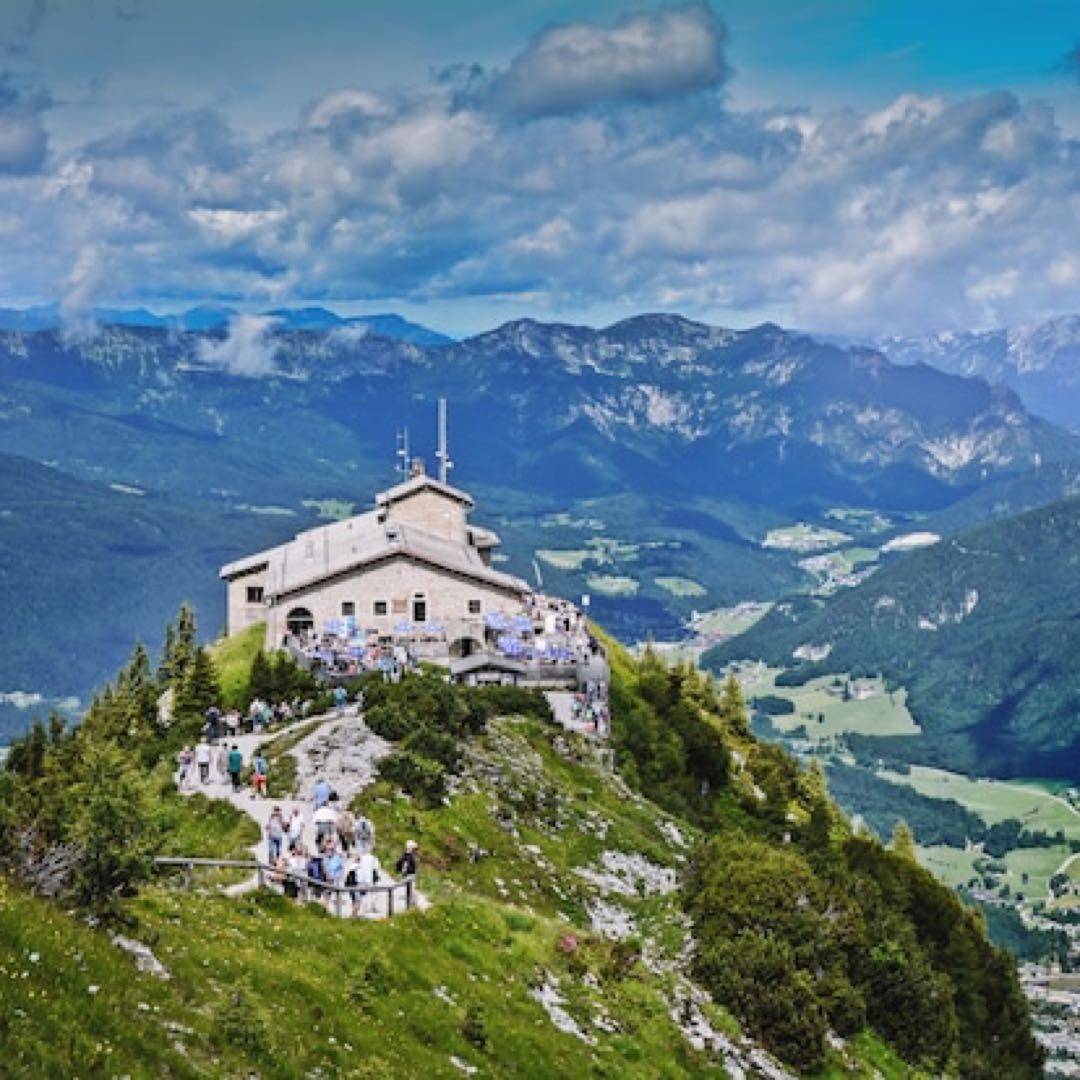
... Hitler‘s cave was much more than a wine cellar; it was a symbol of cruelty and greed, of Nazi Germany‘s hunger for wealth and riches.
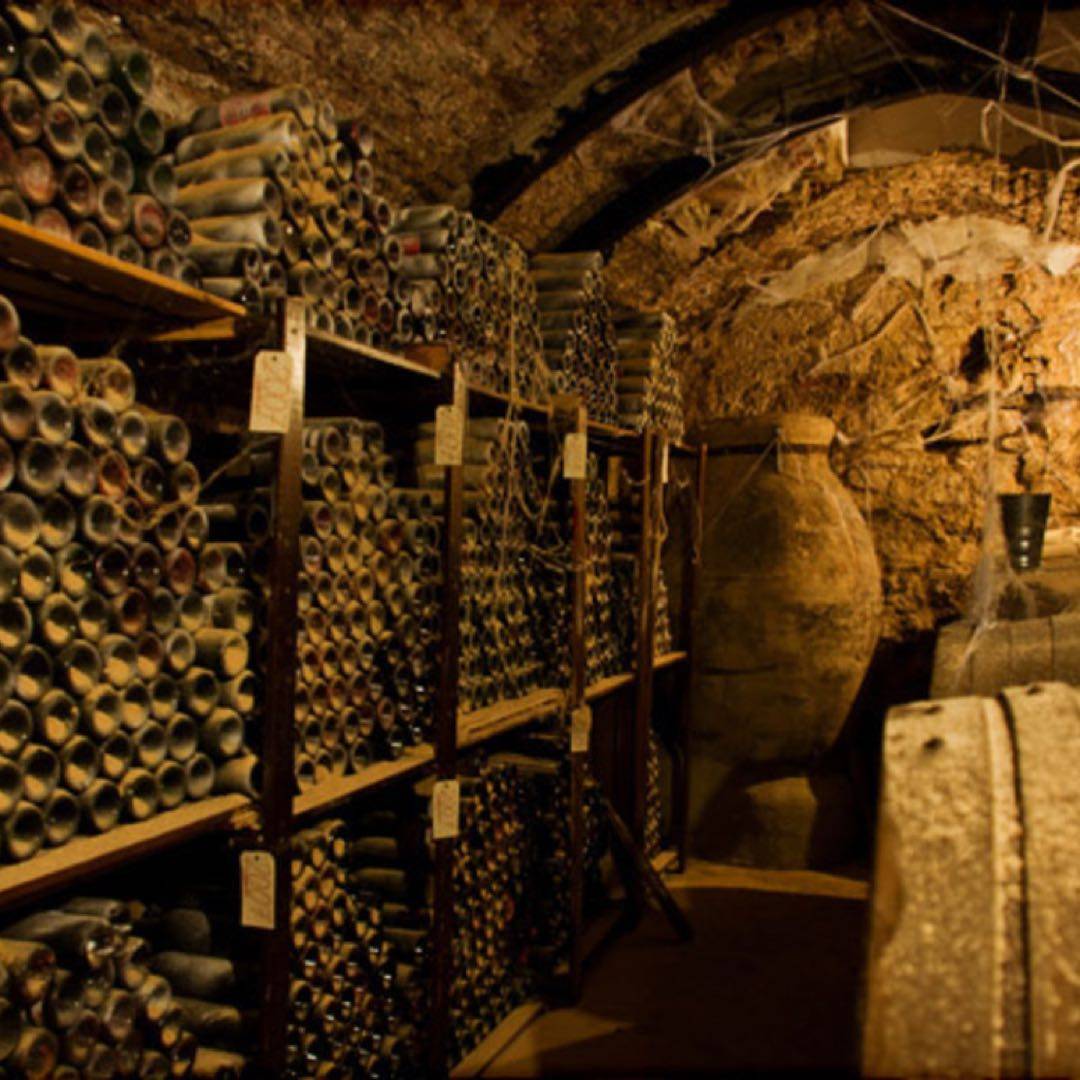
What was also hard to believe was that all this precious wine—sitting in a cave near the top of a mountain—belonged to a man who could not have cared less about it. In fact, he did not even like wine.
That man was Adolf Hitler.
🍇🍷😮😱
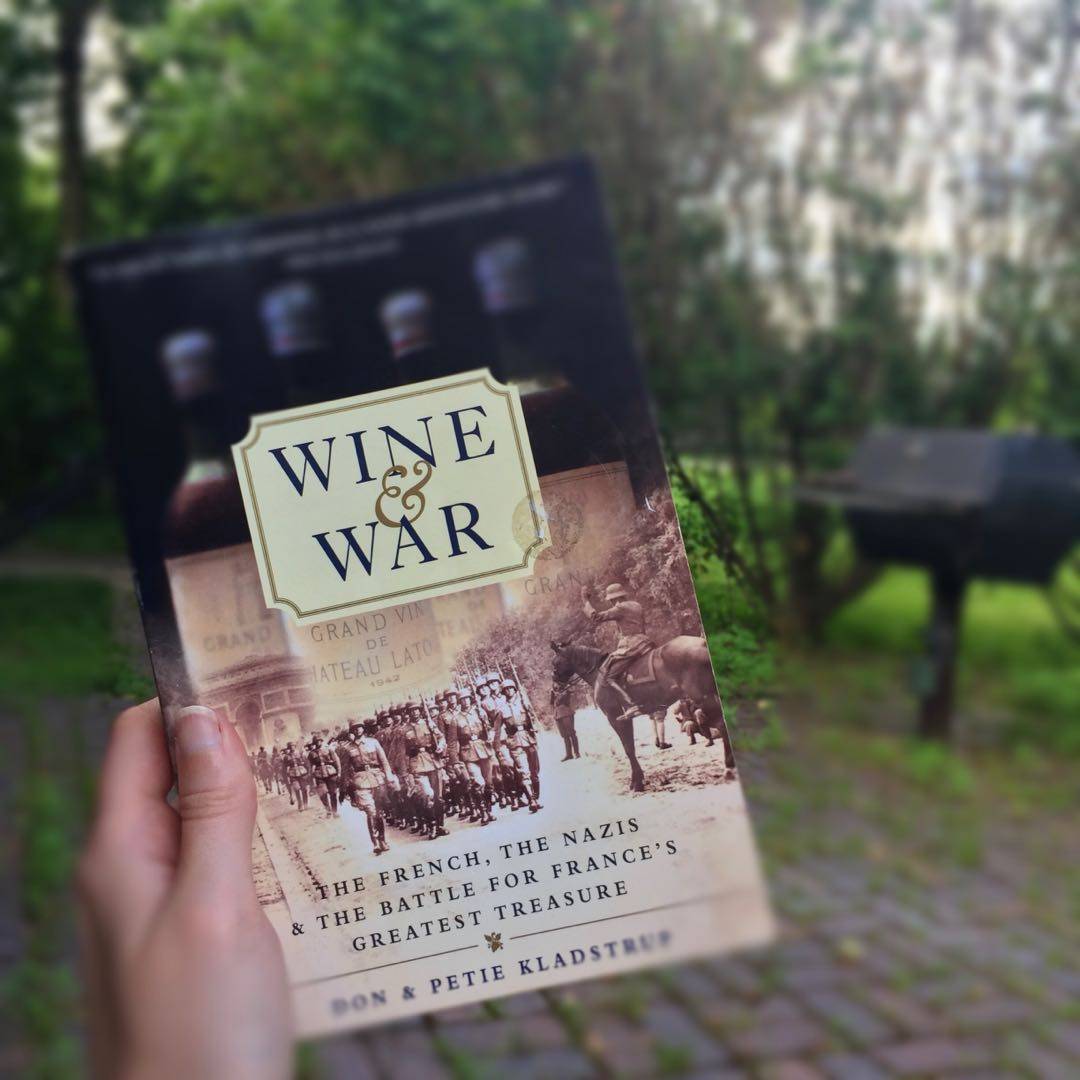
This was a very interesting read! I enjoyed learning about this aspect of WWII which is typically overlooked. Definitely recommended for any WWII fans and wine fans 👍🏻❤️🍷
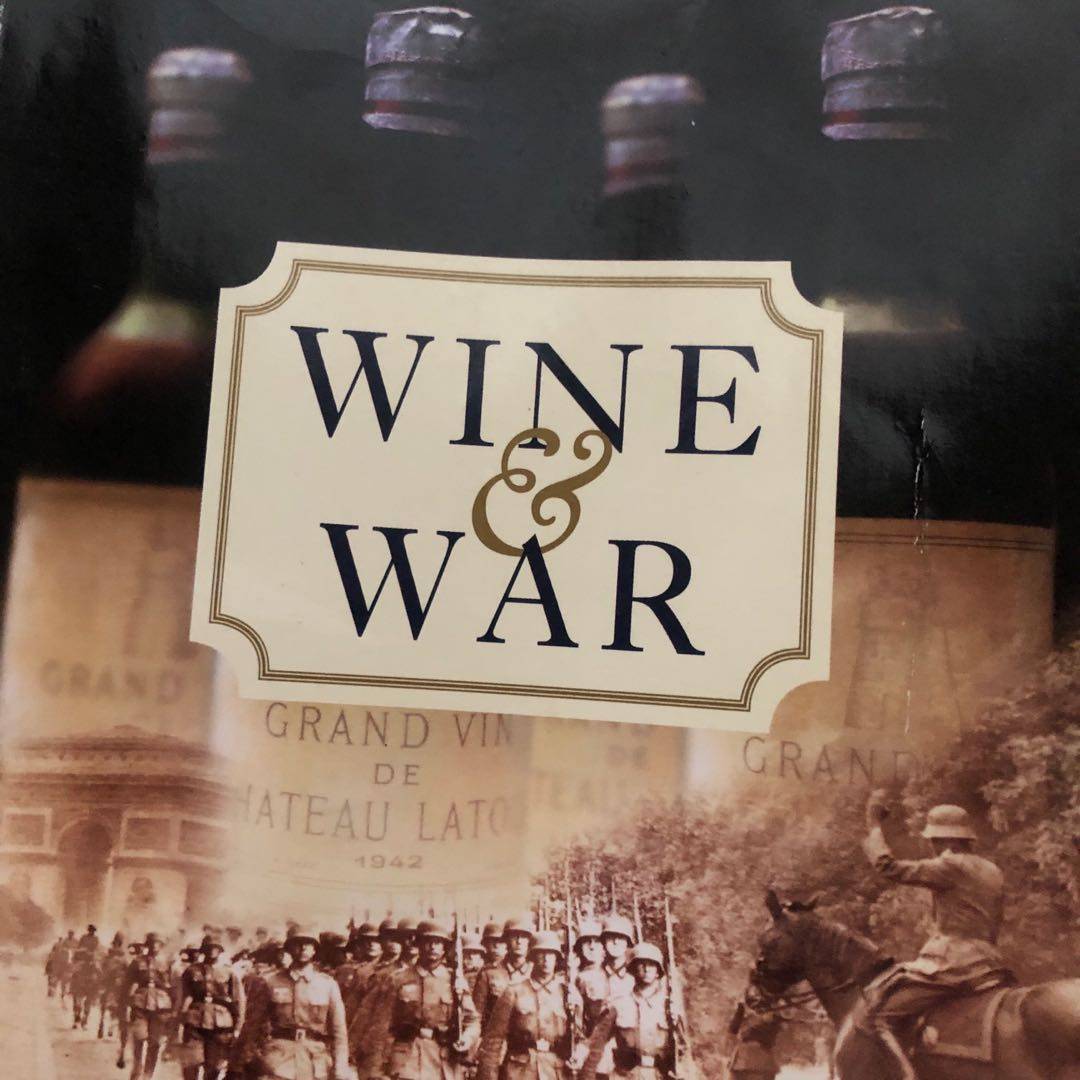
Book done and bottle of🍷done. Great book about how a countries passion for their food and wine gave them hope in the darkest of times.